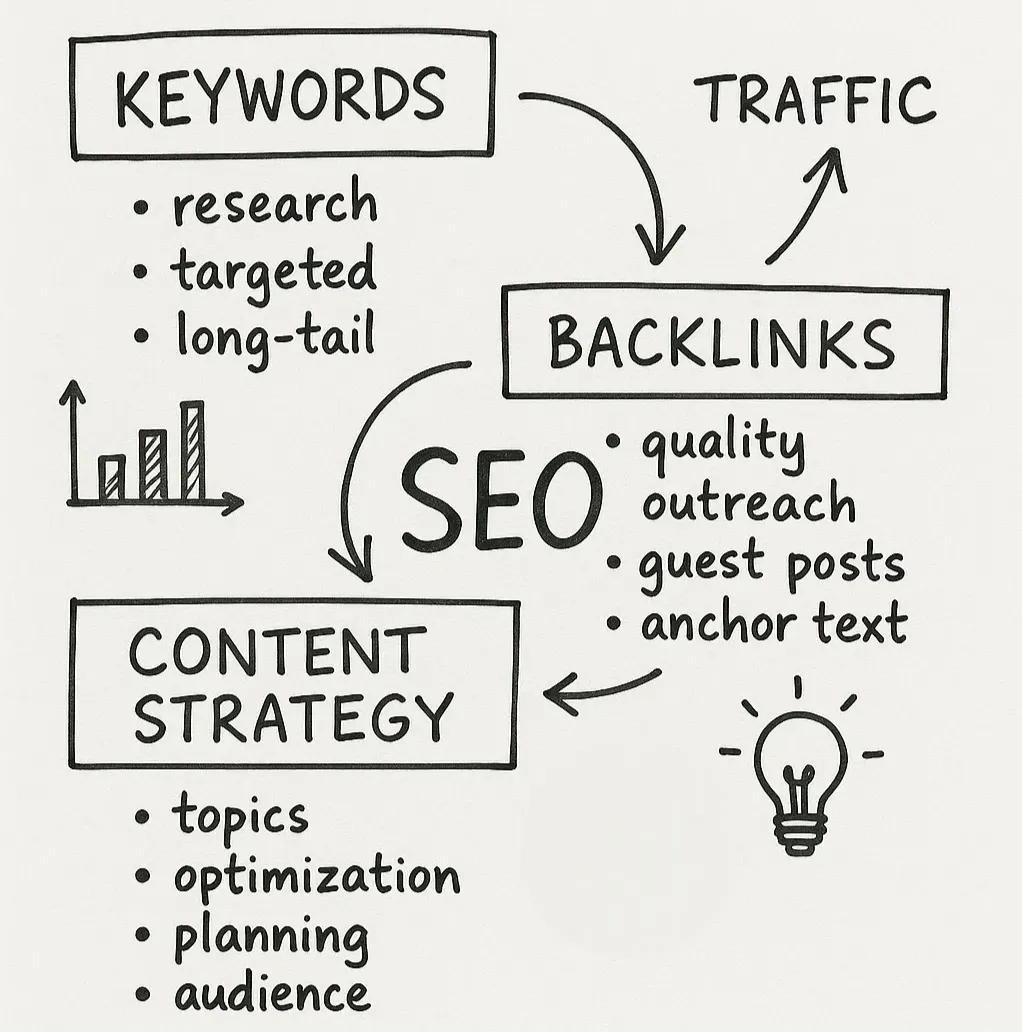If you’re in real estate, you already know how competitive the market can be. The challenge isn’t just having a website, it’s making sure people can actually find it when they search for homes or agents online. Many realtors lose valuable opportunities simply because their sites don’t appear on the first few pages of Google. When that happens, potential buyers and sellers often connect with another agent instead.
Search engine optimization (SEO) changes that. By improving how your site shows up in search results, you can draw in people who are actively looking for homes in your area or ready to list their property. A well-optimized website doesn’t just increase traffic, it brings you the right kind of traffic. With stronger visibility, you’ll have more qualified leads, more inquiries, and ultimately more closed deals.
How SEO Boosts Visibility for Real Estate Websites

Most home searches start online. In fact, that more than 97% of buyers used the internet at some point during their home search in 2025. That means if your website doesn’t show up in Google results, you’re missing the first and often the most important, chance to connect with new clients.
The role of SEO is to put your business in front of people who are already looking. Say someone types “2-bedroom condo in Dallas” or “best realtor in Phoenix.” If your website is optimized with the right mix of keywords and local content, you stand a much better chance of appearing in those searches. The result isn’t just more clicks, but more qualified leads, people who are serious about buying or selling.
Local SEO makes an even bigger difference for agents. Real estate is inherently tied to neighborhoods and zip codes. When your site is optimized for terms like “homes near Dallas Park” or “Orlando townhouse for sale,” you’re targeting buyers and sellers who are ready to act in those exact areas. That’s a level of precision traditional advertising can’t easily match.
There’s also the trust factor. Studies consistently show that users gravitate toward the first few results on Google. We’ve found that organic search drives over half of all website traffic across industries. For real estate professionals, ranking high doesn’t just increase visibility, it signals authority. People tend to assume that if Google places you at the top, you must be a credible choice.
Key SEO Techniques for Real Estate Websites

To make your real estate website stand out, you’ll need more than just listings and photos. A strong SEO strategy combines several techniques that work together to bring in more visitors and convert them into clients. Here are a few core areas to focus on:
Keyword Optimization
People don’t just search “real estate”, they type phrases like “5-bedroom home in Dallas” or “condos near Miami Beach.” By weaving these location-based keywords into your site, you make sure it shows up when buyers and sellers are actively searching. The closer your keywords match their intent, the higher your chances of ranking and attracting qualified leads.
Backlink Building
Search engines look at backlinks as a vote of confidence. If reputable sites point to your content, Google sees your website as more trustworthy. For realtors, guest posting on real estate blogs, being featured in local news articles, or partnering with community organizations are all smart ways to earn those quality links. Each one strengthens your authority and helps boost rankings.
Content Marketing
Real estate is all about information of market trends, neighborhood insights, home buying tips. Publishing blogs, detailed property descriptions, and local guides gives visitors what they need while also feeding search engines fresh, keyword-rich content. Consistent publishing builds long-term credibility. Think of it as showing up to every open house, you may not see results overnight, but over time the exposure pays off.
User-Friendly Layouts
Your website design affects SEO more than most people realize. Clear menus, fast load times, and pages that make sense to the user keep people from bouncing off your site. Search engines notice that behavior and reward it. If you want inspiration, many real estate web design firms showcase examples of high-converting layouts built specifically for agents. You can see the portfolio of realtor web design by Red Spot Design.
Mobile Optimization
More than half of real estate searches now happen on smartphones. If your site doesn’t adapt well to smaller screens, you risk losing clients before they even see your listings. A responsive design ensures your photos load quickly, maps display correctly, and contact buttons are easy to tap, all small details that improve engagement and rankings.
SEO isn’t a one-time task; it’s an ongoing effort. By consistently updating your strategy, monitoring your performance, and adjusting to changes in search behavior, you’ll keep your site visible to the right audience and ahead of your competition.